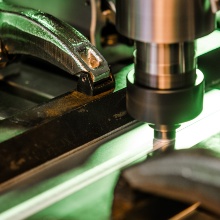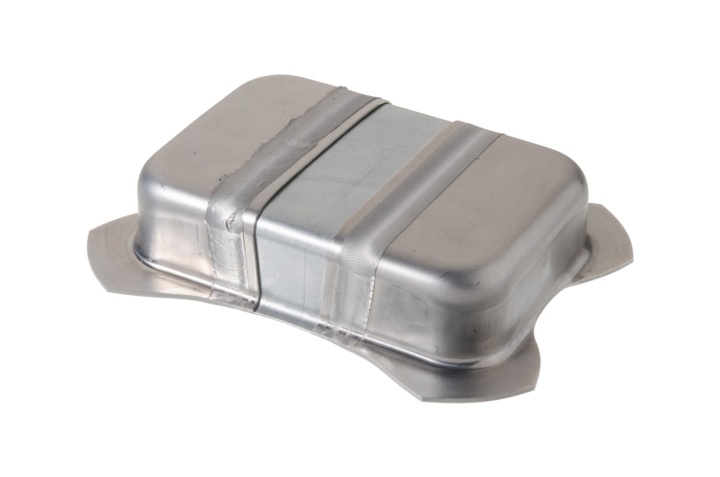At about 160 million tons, road traffic is responsible for approximately 20 percent of total CO2 emissions in Germany. One way to lower this value is to reduce vehicle weight through functional lightweight construction. The research project “CO2-HyChain” aims to advance the research on innovative lightweight construction and to further develop existing solutions for the production of high-strength aluminum and hybrid aluminum-steel tailor-welded blanks. The goal is to reduce significantly CO2 emissions from passenger cars.
In a consortium of three institutes of the University of Stuttgart and nine industrial partners, the project “CO2-HyChain” started successfully under the leadership of the Materials Testing Institute University of Stuttgart (MPA). With a financial volume of EUR 5.7 million and a term of three years, this is the largest project funded to date in the technology transfer program “Lightweight Construction Initiative” of the Federal Ministry of Economic Affairs and Energy (BMWi).
Within the framework of the research project, solutions developed at the MPA under laboratory conditions for joining sheet metal blanks made of aluminum and steel by friction stir welding are being further developed, scaled, and transferred into industrial practice in an interdisciplinary research network.
By joining aluminum and steel, the positive properties of both materials - such as the high strength of steel and the low weight of aluminum - can be combined. In this way, the weight of vehicle bodies can be reduced by double-digit percentages, which leads to significant savings in fuel, electricity, and CO2.
One core element of the project is the development of two complementary prototype facilities that are suitable for series production, with which so-called tailor-welded blanks and tailor-welded coils will be manufactured. Another core element is a tooling concept developed for subsequently forming the sheets joined as flat blanks into a lightweight component by deep-drawing.
Besides the MPA, the Institute for Metal Forming Technology (IFU) as well as the Institute for Control Engineering of Machine Tools and Manufacturing Units (ISW) are involved in the project as representatives of the University of Stuttgart. The machine tool manufacturer Matec GmbH and the company Profilmetall Engineering GmbH, who is a specialist in roll-formed metal profiles, are involved as industrial partners. Klaus Raiser GmbH & Co. KG as well as the metal processing company Preter CNC Dreh- und Frästechnik are participating in the design and manufacture of the production facilities’ technology, while CeramTec is providing wear-resistant tools. To safeguard the process, Optimess Engineering GmbH is developing concepts for non-destructive testing. Furthermore, csi entwicklungstechnik GmbH and DYNAmore GmbH are involved in the project as development service providers. Voestalpine Automotive Components Schwäbisch-Gmünd GmbH & Co KG and Speira GmbH (previously Hydro Aluminium Rolled Products GmbH) are supporting the project with test material. The automobile manufacturers Audi and Mercedes Benz are also involved.
Expert Contact:
Dr. Martin Werz, Materials Testing Institute University of Stuttgart (MPA), Phone: +49 (0) 711 685-62597
E-Mail



